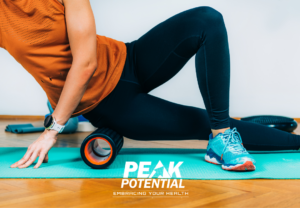
As we follow-up with our running clients who completed a St. Jude event last weekend, the conversation often leads to . . . . “what now?”
Our answer . . . “maximize your off-season”
See, the grueling nature of marathon training and the demands on your body during an endurance race can be all consuming. During this season, time does not allow much general bodywork or form development. By this, I mean doing the maintenance to your body to keep it operating in peak condition.
You may have a nagging pain you’ve experienced through the year that you finally need to take care of. Maybe you have some back issues you can’t seem to shake. The offseason is a perfect time to address your aches, stiffness, and weaknesses.
When you return to a regular racing schedule in the spring, you should feel restored, energized, and excited to begin again – in body and in mind. If you don’t approach your offseason with intention, you run the risk of starting your next marathon season with diminished passion and drive – or even worse, an injury
Let’s focus on the often forgotten role of the “off-season”. This will be the part of the training year furthest away from your first key race. The following 5 tips will help you get the most out of your marathon offseason.
1. Spend time with friends and family
Marathon training involves the whole family! Let the offseason be a time when you spend quality time with those that love you the most – and supported you during your race. Your presence was likely missed on Saturday mornings when you headed out for your “long run”. So, sleep in and make a big breakfast to enjoy together. Visit friends out of town or just go for a long family bike ride (once your leg muscles recover).
2. Visit your medical team
Marathon training is tough on the body from head to toe and most athletes will train through pain during the season. The offseason is the perfect time to figure out exactly why you have those aches pain. More importantly, learn how to get rid of it for good. Even if you don’t have pain, a movement assessment can identify “weak links”. You can learn preventative measures to decrease your risk of tissue breakdown or injury.
3. Have your form analyzed
Find a specialty physical therapist who is knowledgeable in running form and performance. You don’t want to change your running form drastically during the season because this will affect performance and increase injury risk. Now is the time to identify weakness and work to tune up your “running machine”. Following a form analysis, the physical therapist can provide an actionable plan to give you the best chance for a pain-free 2018 season.
4. Strengthen your hips, back, and feet
When you know what area is weak and affecting your performance, or causing undue stiffness, you can strengthen those areas. The most common areas runners struggle with are the hip, back, and feet. Keeping these areas mobile and strong will allow improved shock absorption, greater power, and decreased aches and pains. In fact, injury free training has much more to do with what you do right now than what you do the weeks leading up to a big race.
5. Do Something Physical (that’s NOT running)
Although running is a great physical exercise for your body, you only perform movements straight ahead. In order to continually improve your strength and running efficiency, you need to provide your body with a new stimulus. Try pick up basketball, ice skating, or a dance class. Each of these use different motor patterns and activate muscles that miss out when you are only running every day. Use the offseason to provide some variability in your training.
To have the best marathon season it is important to get the most out of your offseason. If you live in the Collierville/Shelby County area and would like to speak with a sports specialist physical therapist about marathon training, an injury, or offseason strengthening, you can schedule a free call at the link below.
If you are looking to improve your performance during your 2018 Marathon training season, find out more about our Individualized Performance Program through the link below.




